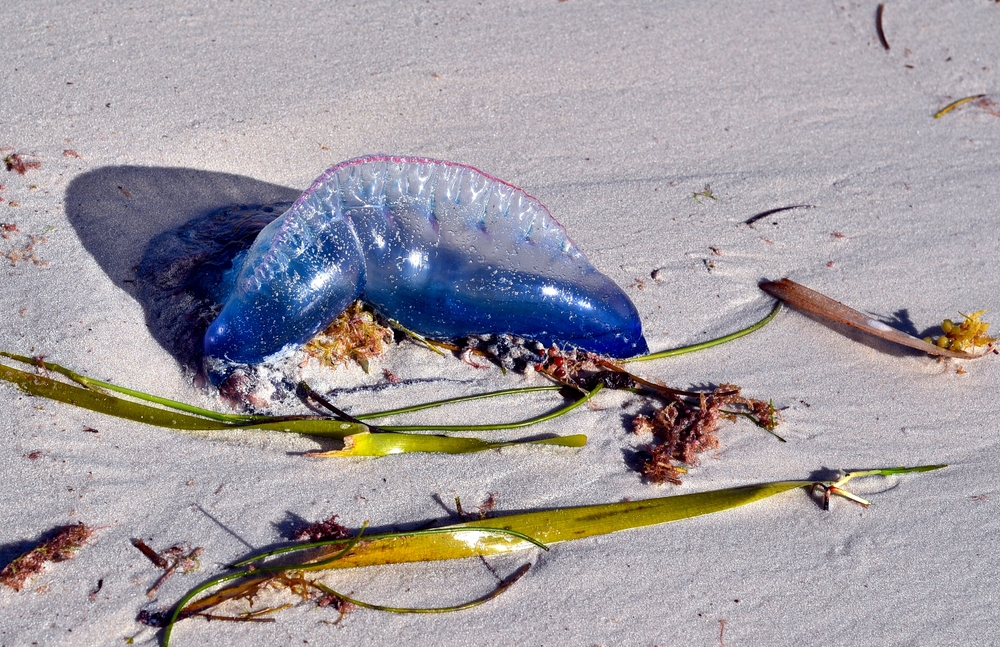40 specimen was found washed ashore
Others are reading now
Phuket’s renowned Patong Beach has become the focus of urgent safety warnings after dozens of poisonous “Bluebottles” were discovered along the shoreline this past weekend.
Concers for Beachgoers
According to the Bangkok Post and Tag24, local marine researchers reported the unusual influx of these jellyfish-like creatures, also known scientifically as Physalia utriculus.
The Bluebottles, which are part of the same family as the infamous Portuguese Man O’ War, are smaller and less dangerous. However, their presence has raised concerns among local authorities and beachgoers alike.
The creatures were spotted by authorities and lifeguards, with an estimated 40 specimens found washed ashore. Despite the alarming sight, no tourist stings have been reported so far.
Also read
Painful Stings and Red Welts
These marine animals have a distinctive blue gas-filled bladder that can reach up to 15 centimeters in size, and their tentacles can extend up to 10 meters.
While encounters with Bluebottles typically result in painful stings and red welts on the skin, they are rarely fatal unless an allergic reaction occurs.
In response to the incident, local authorities have distributed warning brochures and urged beachgoers to exercise caution. Lifeguards are on high alert, ready to administer first aid if necessary.
Patong Beach, stretching three kilometers, is located in the vibrant town of Patong, known for its lively nightlife.
Phuket, Thailand’s largest island, lies in the Andaman Sea off the country’s southwestern coast. The presence of these jellyfish-like creatures is attributed to strong winds that have carried them towards the shore, causing an unusual but manageable situation for the local community and visitors.


